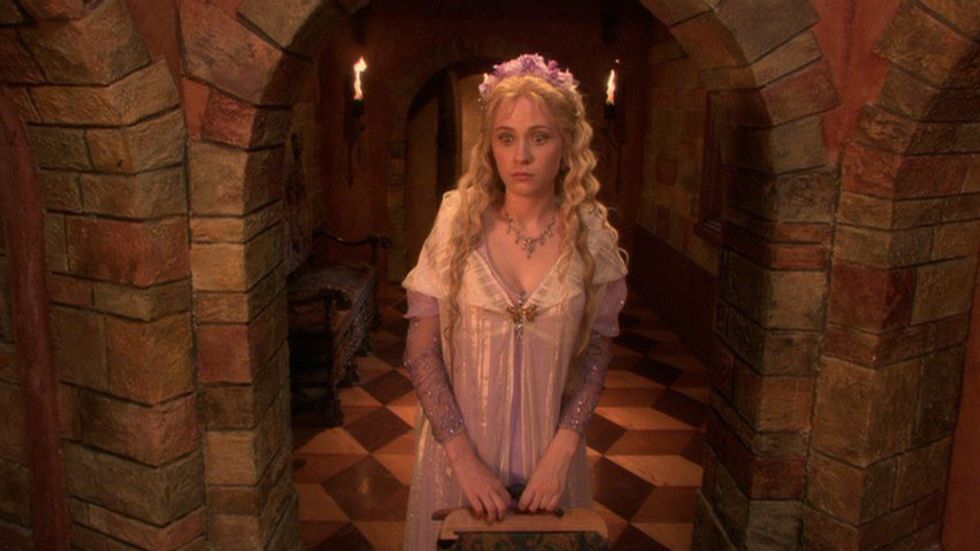As a New Yorker, it was hard to grow up without seeing or hearing about Broadway musicals. This, of course, was no problem to me! With the bright lights, stage effects, amazing scenery, quick scene changes and engaging singing and dancing, it's hard not to appreciate the work and beauty that goes into a show — and, ultimately, the message that you take away from it. In my 20 years, I've seen many musicals, and inevitably did lots of thinking about each and every show, and I believe that I have been able to take something significant away from each and every one of them that has given me a better understanding on life.
1. Others' perception of you does not define you.
"The Phantom of the Opera" was the first Broadway musical I saw that made me intensely reconsider my entire life and career path. I don't think I would be a playwright today if I wasn't so moved by this show. What I took away from it was that you think you really have a person pinned until you break down their walls — or unmask them, so to speak. There is always a side of someone's personality that they are hiding from you, and the true form of a person is who they are when they are alone. I saw the phantom as the underdog. I saw him tortured as a child. I saw people speaking down to him. But when he was alone, he was writing masterpieces and singing love songs. Is this truly a monster, or just a misunderstood person? Someone who had to build up his walls and a new facade to protect himself.
2. Looks matter.
Tracy Turnblad is an excellent role model for any kid who feels like they have a lot of potential that is overshadowed, perhaps because of their appearance. In the musical "Hairspray," we see that Tracy's weight doesn't matter and she ends up with Link, the boy she had her eye on but wasn't sure if she was good enough for. But just because she ends up with him doesn't mean that all is well and OK in the world. We had to see her struggle and fight for it by being an amazing singer and dancer with an effervescent personality in order to be able to have a fair shot against the skinny girl with a rotten personality. Why did she have to fight so hard because she had a little more to love? And while we're on the subject, what is the last role you can think of that had an overweight lead that their weight wasn't alluded to or worked into the plot at some point?
3. Sometimes princesses don't act like princesses.
Yes, I'm alluding to the musical that everyone and their mother most likely did in their high school at one point, "Once Upon A Mattress." Most people will overlook the lead character, Winnifred, as comic relief, but what I see is a regular girl who happens to hold the title of princess. Fred is a character who seems to be very flawed and clumsy and speaks her mind, but maybe this is just a regular girl whose personality has been embellished for the sake of a theatrical performance. I think she represents a new age of royalty, with less politics, less fake lifestyle choices, less B.S. and more humanity.
4. People change people.
I agree that experiences can change people, but what I've seen change people more than anything is other people. Not to mention the experiences that have most affected me usually involved one person, whether their impact was positive or negative. I saw this change, for the better, in "Wicked's" Glinda and Elphaba, especially when they sang about it in the song "For Good." The musical helped me realize that I need to be more open and accepting of others, especially if I don't like them at first. Fate could have brought this polar opposite person into my life because I am too polar opposite and need a little attitude adjustment. Often we are unable to see that we need change, and when we clash with others, this is usually a good indicator that we have room for adjustment. Seeing how they both ended up at the end has made me accept everyone who comes into my life as the potential person who will change me for the better, because it will most likely be the person I least expect it from.
5. The line between infamy and fame is getting thinner.
In the musical "Chicago," we see the rising fame of a group of criminals. This musical helped me see that the public will often read the article about the gruesome murder of a woman's husband instead of the good samaritan who saved children from a burning orphanage. This is precisely why we, as a public, make unworthy people famous. We like to be affected, horrified even. The concept of killers turning into celebrities, as presented in "Chicago," isn't foreign to us at all. I think one of the biggest problems with the world is this issue of making negative forces in our society famous.
So whether it's the simplicity of going to see the raw talent of live performance that you can't get from television, or the complex messages we often see surfacing the more we read into the plot, Broadway musicals will always hold a very special place in my heart. I believe they help us to understand human nature, teach us a thing or two about life and the human pursuit of happiness, and ultimately help us to see when there's room for social change — perhaps, an evolution. And who could ask for anything more?

























